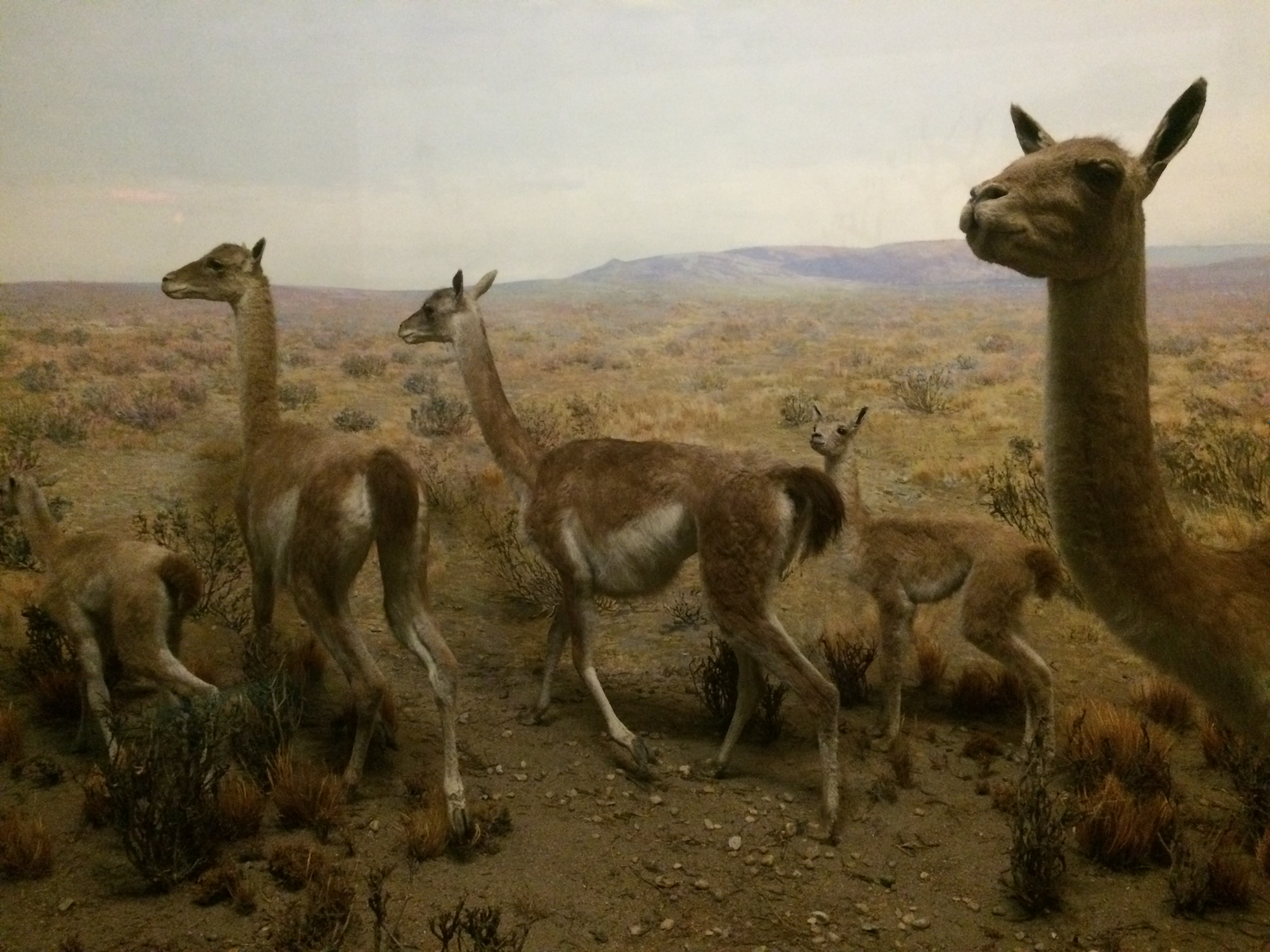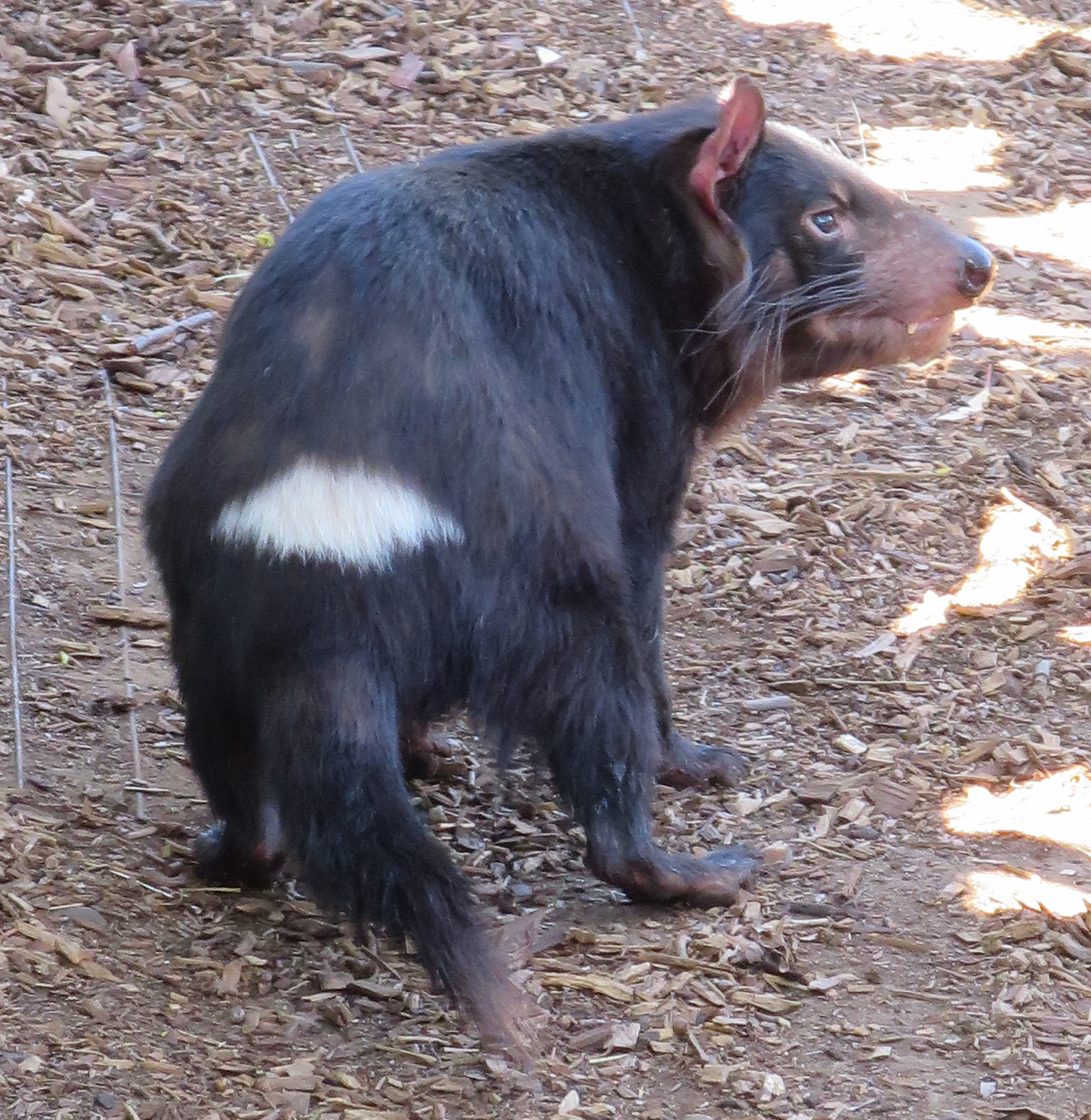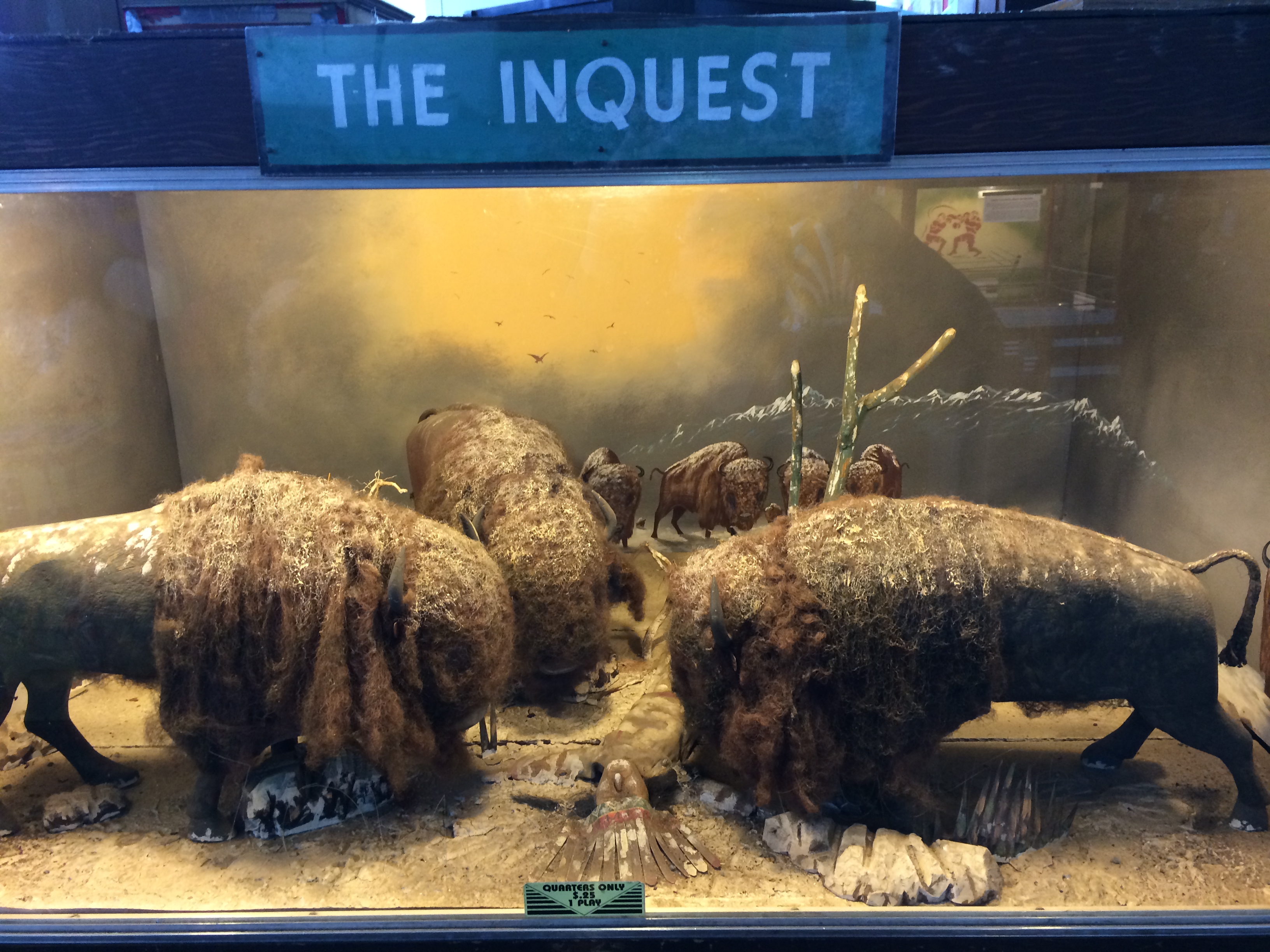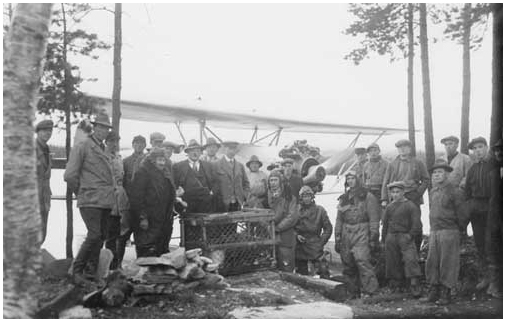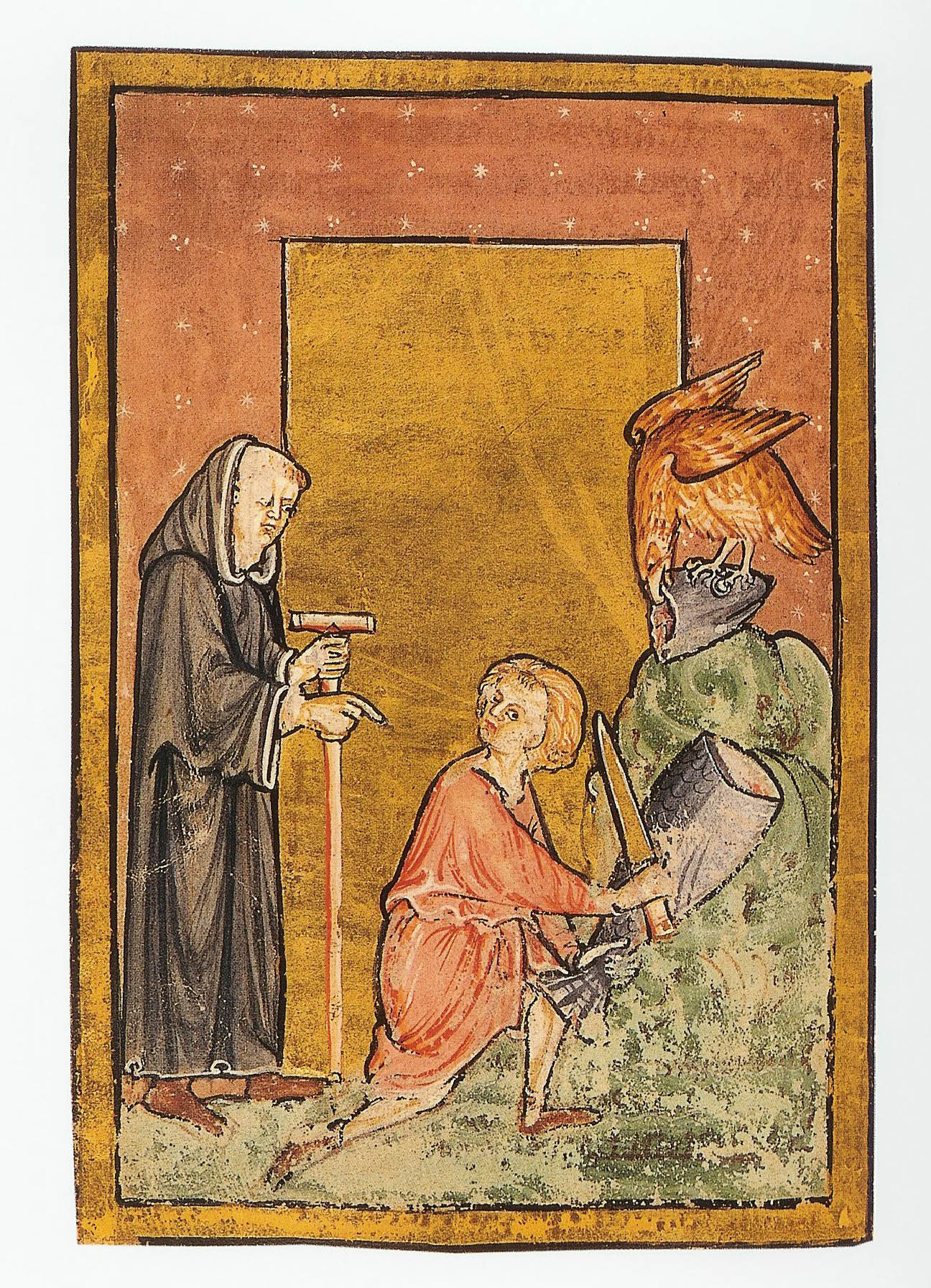
Making room in a medieval story & today
The biographies written in the early 8th century about St. Cuthbert, who lived c.634-687, include several miracles with animals. The most famous of these is a story of the otters who anoint and wipe Cuthbert’s feet, but I think the lesser known stories of birds might give us insights about animal belonging and making room for the nonhuman.
In one story, Cuthbert got angry at some birds who were eating the newly sowed barley crop:
The most pious servant of God approached them … ‘Why,’ said he, ‘do you touch the crops that you did not sow? … If, however, you have received permission from God, do what He has allowed you; but if not, depart and do not injure any more the possessions of another.’ Thus he spoke and, at the first sound of his commands, the whole multitude of birds departed and thenceforward refrained altogether from attacking his crops.
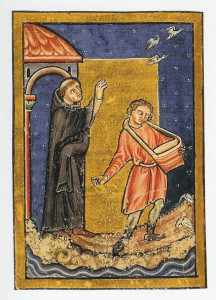
The story sounds pretty straightforward: it’s just a farmer yelling at some birds. But looking at the middle part, we see that Cuthbert did not just banish the birds. Instead he asked if the birds had been given the right to do what they were doing. Cuthbert specifically told the birds that if God had permitted them to take the barley, they were welcome to do so. In this statement, Cuthbert acknowledged that although man sits at the top of the food chain, other creatures had a right to food too and provision of it may interfere with the best-laid human plans. For Cuthbert, if God’s plan had included the birds’ consumption of the barley, man would have to submit to it. It turns out that the birds did not have permission, so they departed. Yet Cuthbert admitted that nature was not something that always conformed to human desire.
As I discussed this story and the other animal miracles in St. Cuthbert’s lives yesterday in a senior-level seminar at Ohio Wesleyan University, I realised that although this isn’t directly related to my project on reintroduction in the North, it spoke to the same kind of concerns. Cuthbert was admitting that sometimes animals do things that aren’t beneficial, and perhaps even harmful, to humans, but that is ok. They can still belong.
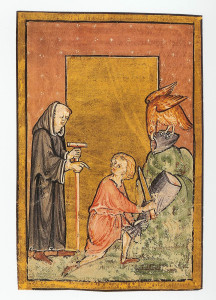
Another story in the Cuthbert legend stresses that humans have to share the bounty of the earth with nonhuman counterparts. This one involved an eagle:
Cuthbert looked up to heaven and saw an eagle flying in the sky and said to his boy: ‘This is the eagle which the Lord has instructed to provide us with food today.’…The boy ran towards the eagle in accordance with the command of the servant of God, and stopping, he found a large fish. The boy brought the whole of it to him, whereupon Cuthbert said: ‘Why did you not give our fisherman a part of it to eat?’ Then the boy … gave half of the fish to the eagle.
In this story, the eagle serves as a tool that provides food for humans, but it cannot be taken for granted. Just as man needs food, the eagle does as well. As humans we can’t just take it all and leave the eagle to starve.
This literature written in the 8th century about a man who lived in a very different world than the 21st century still holds universal truths. In these medieval stories, Cuthbert was saying that we have to make room for the nonhuman to do what they need too. It’s not just about us. Animals belong too.
